This year, we watched in awe as the Prime Minister of the world's largest democracy launched a good governance program built on our platform; as we powered the first government scheme to surpass its target by 47%; and as nearly 100,000 surveyors sourced data on our app in 17 countries.
As we looked back on this year, we were blown away by the sheer scale of what our partners have done. We built a platform to make every decision more data-driven. They took it to heights we could hardly dream of four years ago. So as we bid adieu to 2017, we'd like to celebrate our partners, who have taken substantial steps toward creating a better, more data-driven world using our platform.
We were selected for the 5th class of Google Launchpad Accelerator. We’ll be joining 23 other startups from around the world in San Francisco in January 2018! (Read more here.)
We partnered with the United Nations, Government of India and Business Council of Papua New Guinea to track the countries' progress towards achieving Agenda 2030. (Learn more here.)
Prime Minister Narendra Modi launched our DISHA dashboard, which finally gives government officials at all levels the data they need to create better data-driven policies. (Read more here.)
To power better digital data collection, we launched a new version of our mobile data collection app Collect, which 60,000 field auditors used to capture 1.2 bn. data points in 2017! (Check out Collect.)
Nearly a quarter of India's annual deaths are from diseases like malaria, dengue, tuberculosis, and gastroenteritis. However, data on these diseases is notoriously inaccurate. We partnered with a large FMCG company to pinpoint weekly outbreaks of 20 major diseases at the sub-district level.
Under the Village Social Transformation Foundation, fellows are tasked with turning Maharashtra's 1,000 poorest gram panchayats (collections of approximately 600 households) into model villages. The fellows use our platform to collect data on every household and village, then create, execute and monitor targeted village development plans.
Across Africa, millions of rural smallholder farmers are caught in poverty. Because they cannot access agricultural markets, they are forced to sell their crops to middlemen for low prices. The World Food Programme created Maano, an app to connect farmers directly to buyers. They used our platform to monitor and evaluate the pilot of this app.
Adivasis (indigenous people in Southeast Asia) are stuck in an intergenerational cycle of malnutrition. Azim Premji Philanthropic Initiatives uses our platform to monitor their "Farm-to-Plate" model, which ensures that adivasi women and children get a balanced diet.
Even cheap smartphones are a source of information and opportunity, yet women in rural India just don't learn how to use them. Internet Saathi, a program pioneered by Tata Trusts and Google, closes this digital literacy gap. They use our platform to track their 25+ NGO partners across 10,000 villages.
Read more about this deployment.

Firewood, coal and other clean cooking fuels cause 500,000 deaths per year. Under the Pradhan Mantri Ujjwala Yojana, new LPG (liquified petroleum gas) connections will replace these unclean cooking sources for women below the poverty line. The Ministry of Petroleum and Natural Gas used our platform to monitor this scheme and make course corrections.
India's government data lives in siloes, separated across different databases because each ministry operates on different geographic units. We partnered with the Ministry of Rural Development to finally unify and make India's most important data points accessible for elected officials at all levels.
Read more about this deployment.
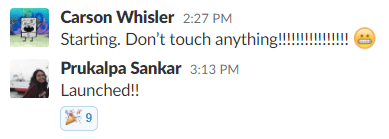
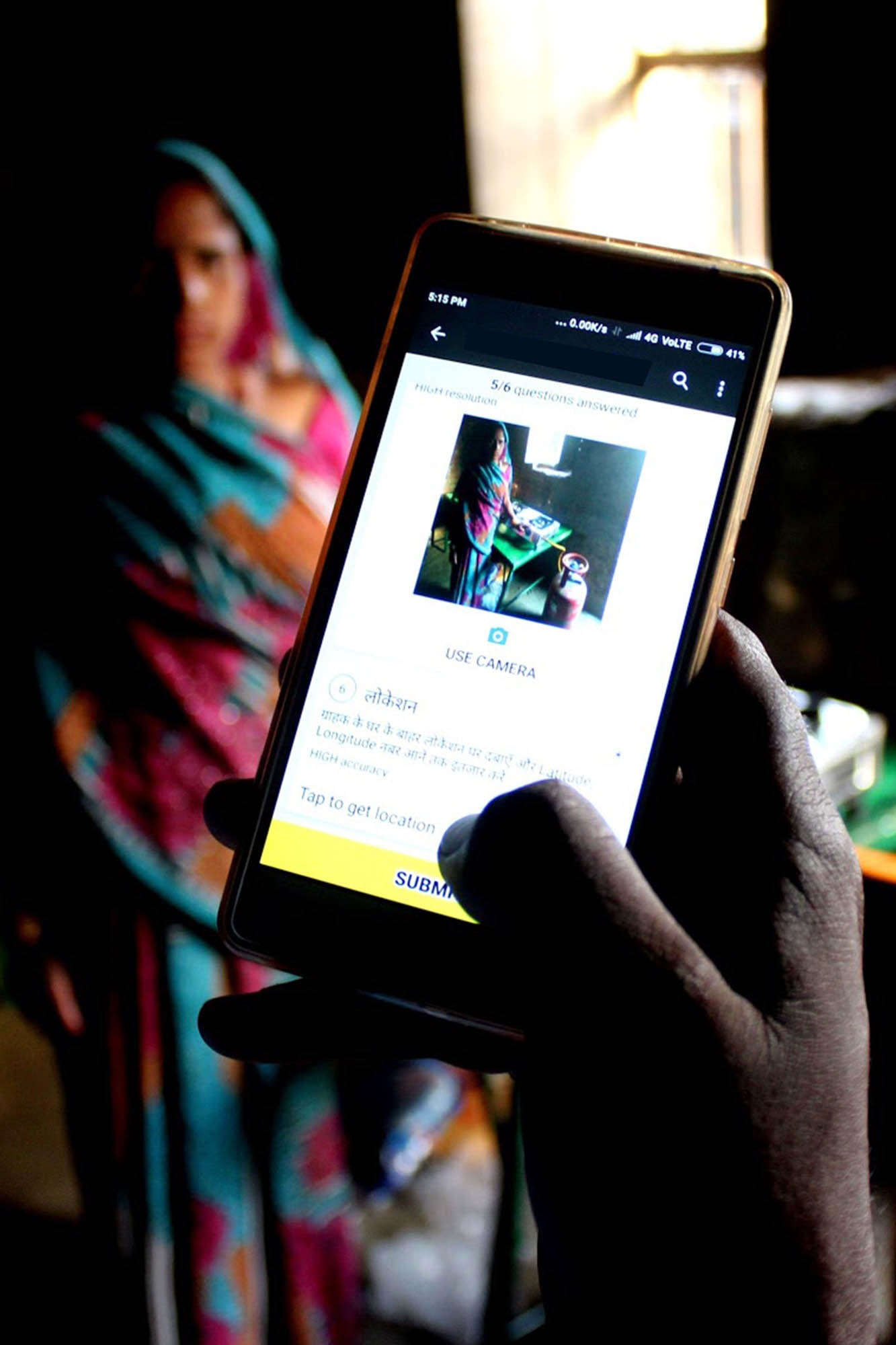
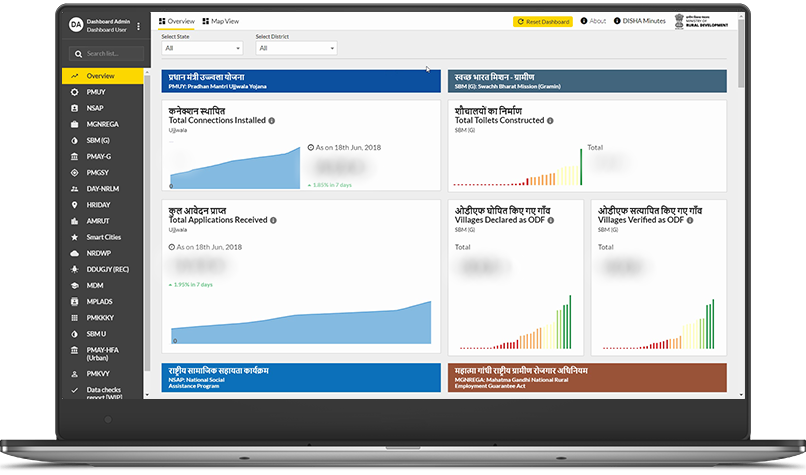

To jumpstart good governance in India, the DISHA Dashboard brings data from 41 flagship government schemes to one place for the first time. This empowers government officials at all levels with data and analysis on key government initiatives for any geographic level, over any time period. (Read more.)
Today, DISHA — the digital dashboard that has been launched in front of you — is a crucial step towards good governance... It will help us take effective monitoring to every village of the country. The decision-making will not be just top to bottom. This dashboard will be a huge success in speeding up the developmental processes in the country.

Prime Minister
Government of India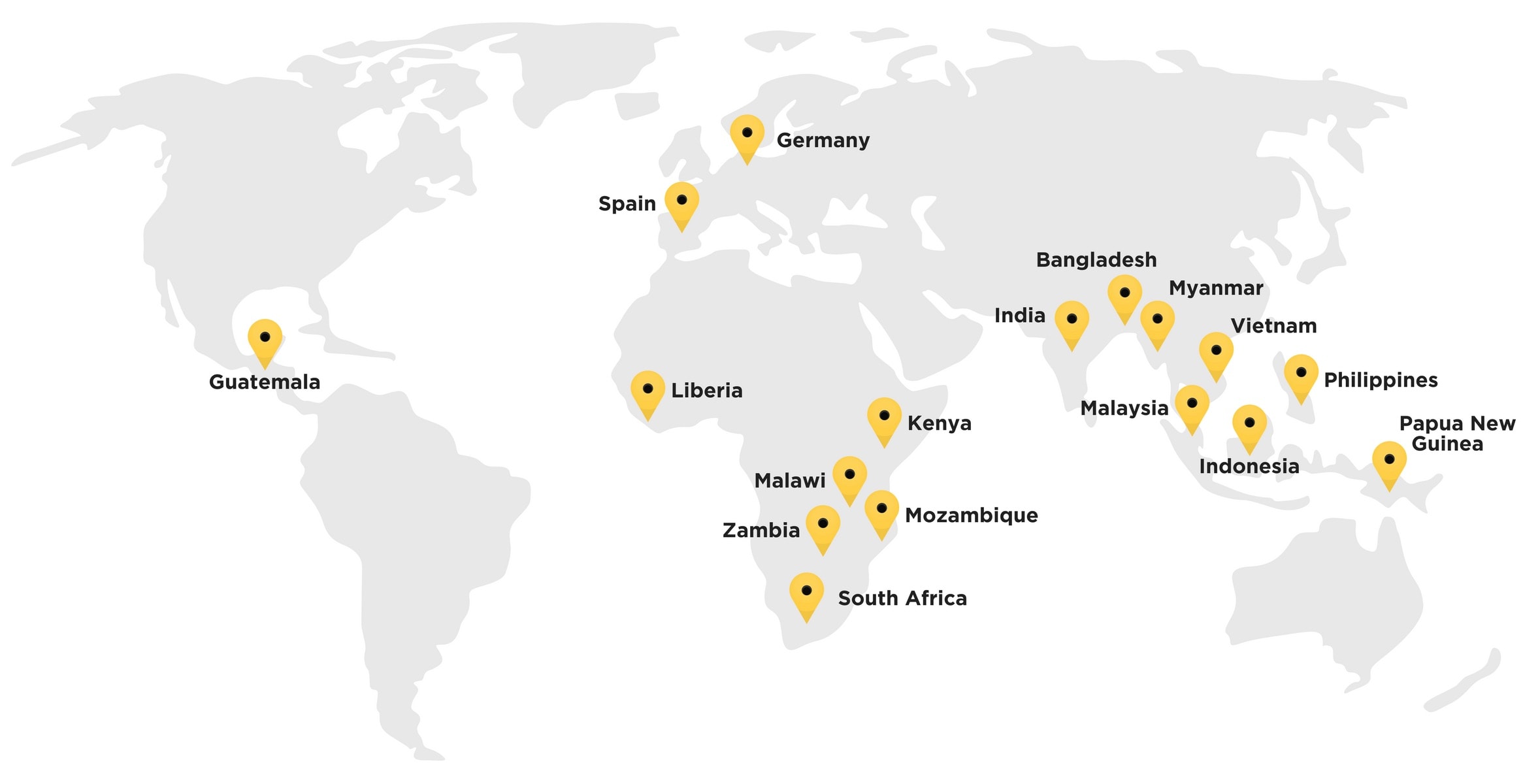
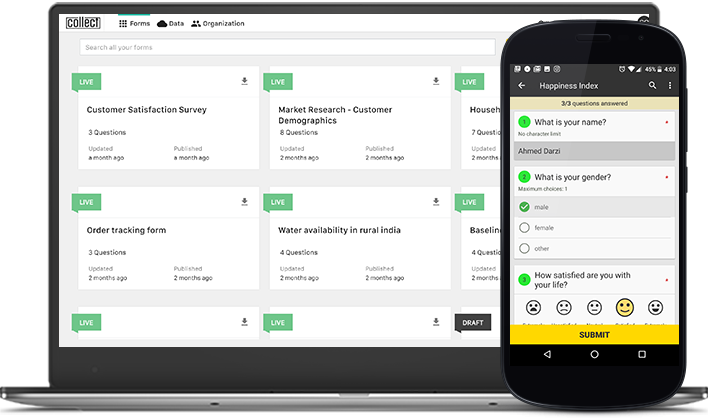
We took two years of learnings about field data collection and completely rebuilt Collect — the entire user interface and user flow, backend infrastructure, querying, reporting, and more — to make the app far more robust. The brand new Collect went live in 2017. Now Collect can withstand any test, whether it's geotagging rural villages in Zambia without internet or recording 60,000 surveys in a single day. (Learn more about Collect.)
Sector: Female empowerment
Location: Malawi
Girl Effect uses mass and social media, technology and girl-centred community engagement to challenge individual and social barriers that hold girls and their communities back across Africa. Until now, they collected data on paper, entered it into Excel and analyzed it. Now they are starting to digitize their processes with Collect, starting with tracking interactions between brand ambassadors and youth in Malawi.
Sector: Off-grid refrigeration
Location: India, Bangladesh and Sri Lanka
Promethean Power creates cold-storage and milk chilling refrigeration systems for dairies off-grid and partially electrified areas. Its servicing team uses Collect to track data on its customers and customer service team.
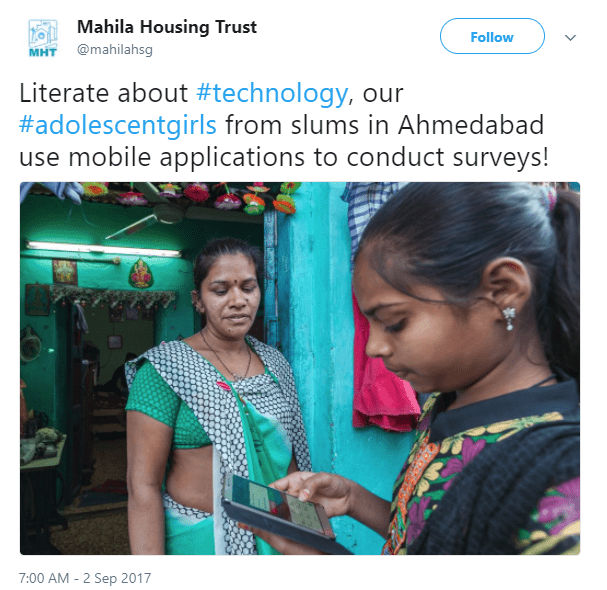
Sector: Healthcare
Location: Bangladesh
A Telenor venture, Telenor Health uses mobile technology to make high quality health information, advice and services accessible for everyone. It uses Collect to capture data on health facilities, pharmacies and healthcare services.
Sector: Female empowerment
Location: India
empowHer India works to establish an equitable society where all women are empowered to reach their full potential and become catalysts of transformation for themselves and their communities. It uses Collect to conduct household surveys and run monitoring & evaluation across 3 sectors — water and sanitation, support services and education.
Sector: Environment
Location: South Africa
WESSA implements effective environmental, ecotourism, education and youth development programmes. One of its initiatives is Tourism Blue Flag, a three-year program to improve the quality and visitor experience for South Africa's beaches. WESSA staff at Blue Flag beaches use Collect to collect environmental data, and monitor and evaluate the initiative's impact.
Sector: Education
Location: India
India Literacy Project is a non-profit organization that fights for 100% literacy in India. The organization currently works in over 1,200 villages, impacting around 300,000 people. It uses Collect to carry out field and household surveys, run literacy assessments for children, and log library books.
Sector: Waste management
Location: Bangladesh
Gone Adventurin is an action & advisory firm working to create a world without waste. It uses Collect in the Philippines and Indonesia to collect data on waste management at 3 levels — household-level information, tonnage distribution, and daily waste pickups.
Sector: Education
Location: India
Just for Kicks runs football programs to help underprivileged children develop life skills. It uses Collect to track coaches' attendance and capture data about their sessions.
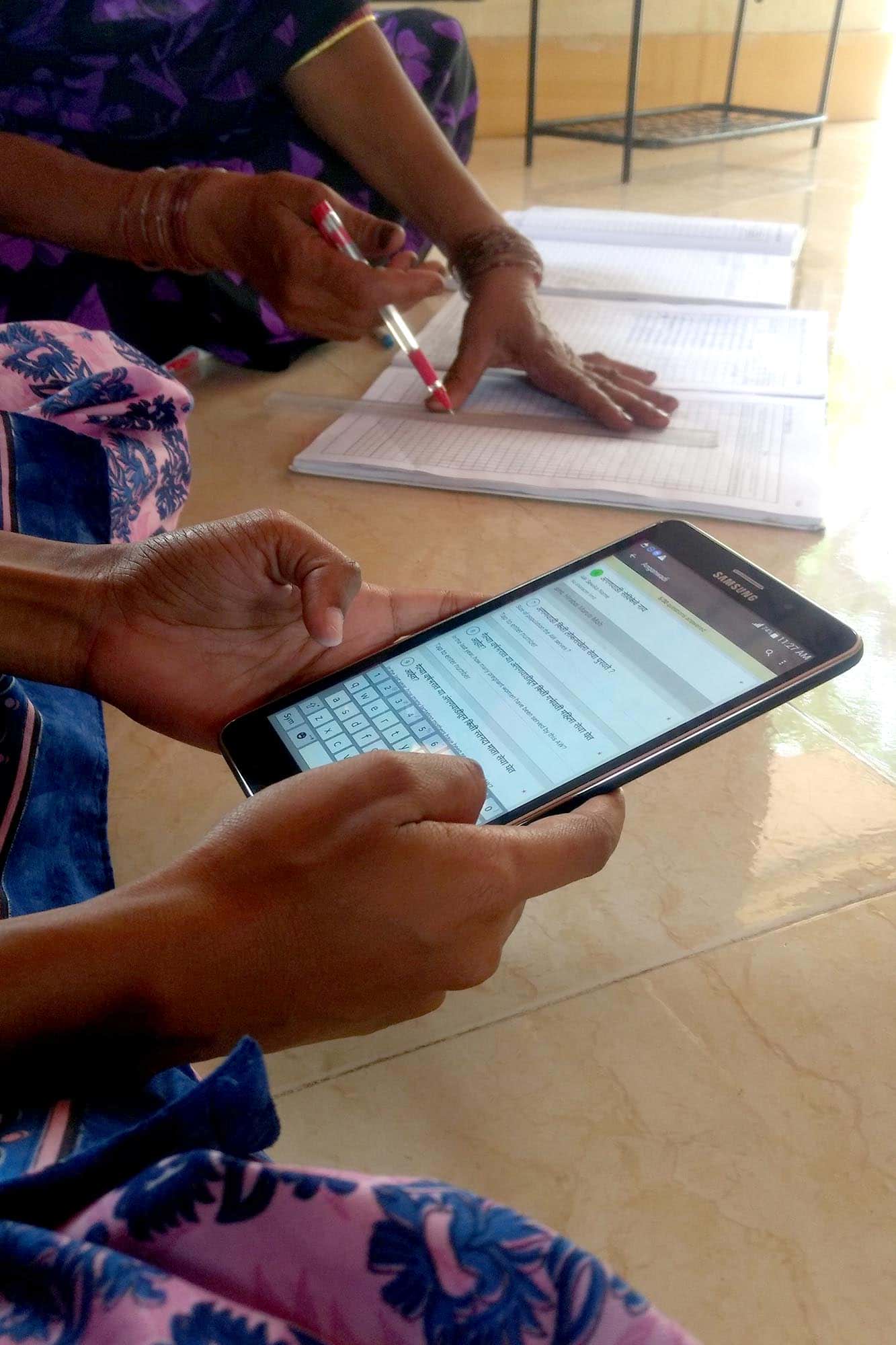
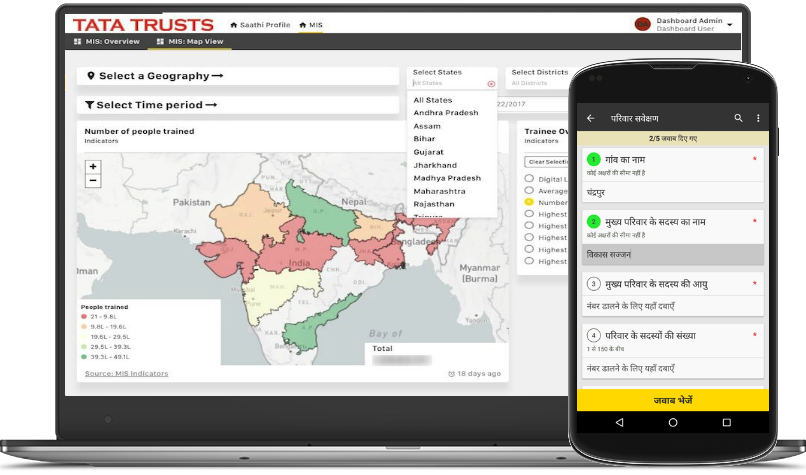

The Tata Trusts and Google created the Internet Saathi program to reduce the digital gender divide in rural India. They use our platform to track and assess the program as it brings 10 million women from about 100,000 villages onto the internet for the first time. (Read more.)
With Collect, we could create a common platform across multiple states and districts. Our program quickly scaled to multiple geographies, requiring language support across multiple languages, which Collect could manage with ease!

Consultant (MIS and M&E)
Tata Trusts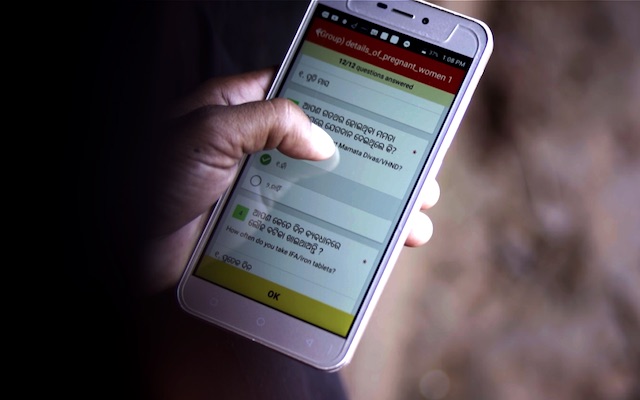
Feature
Bad data can lead to bad decisions, so don't let it in your database. Our Flagging feature lets you flag incorrect responses to get resurveyed back in the field.
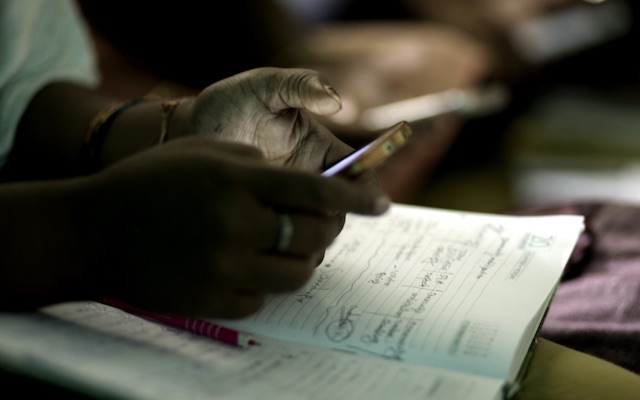
Feature
Entering data for the same entity over and over is no fun. That's why Collect supports Monitoring, where you can create baseline profiles and easily layer new data over time.
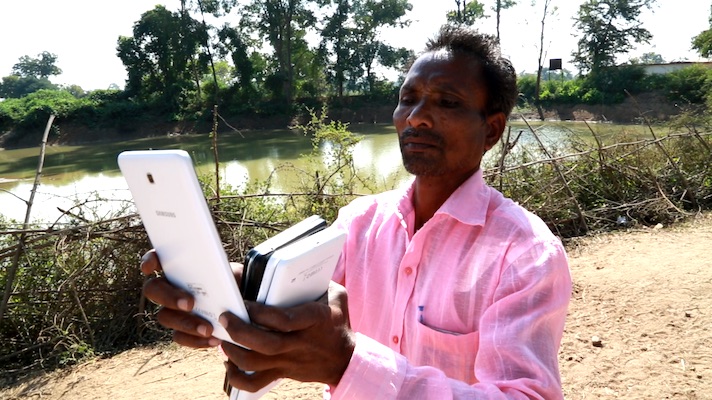
Feature
Sorting collected data is a must for massive surveys. With Response Tagging, you can now add tags like ‘verified’ or ‘archived' to each response.
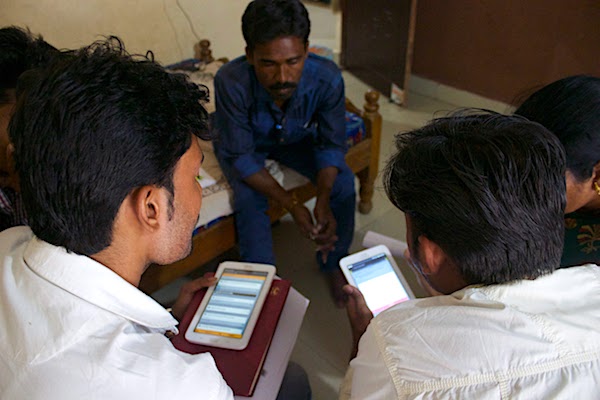
Feature
Tracking the progress of a survey is a breeze with Response Maps. Just check out where your data is coming from on a filterable map view.
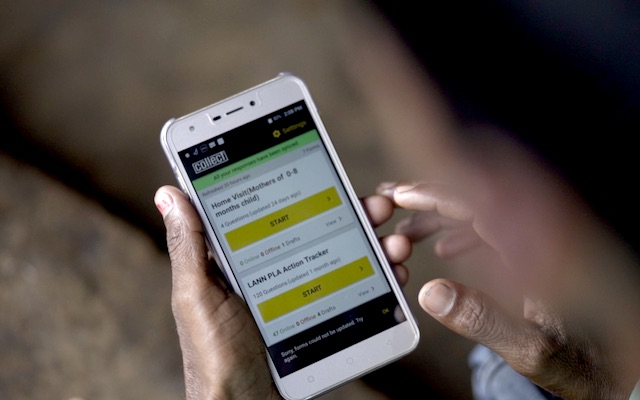
Feature
Spend less time building forms and more time playing with your data, thanks to Form Templates. Just choose the right template and go!
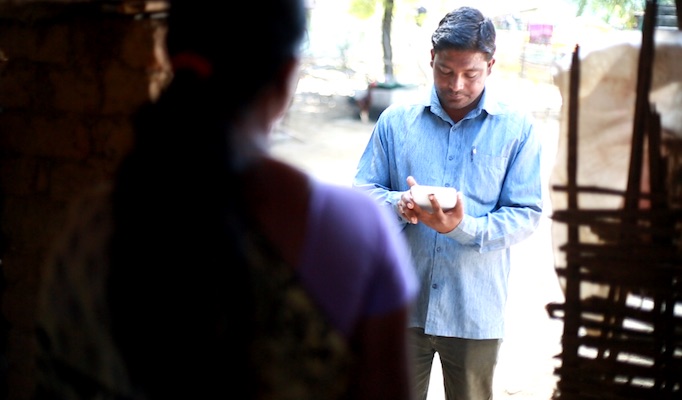
Feature
Make sure that you're collecting high quality data with Audio Audits, which automatically record audio clips at random or custom intervals.
We spent our first three years diving deep into whatever challenges our partners brought us — no matter the domain or challenge, we knew we could solve their problem.
This year, we changed our strategy. We had seen the same set of challenges and use cases over and over, and we had built a powerful platform for wrangling data in emerging markets. Now we could tackle them with pre-built solutions for Sustainable Development Goal tracking, hyperlocal targeting, scheme monitoring, and more.
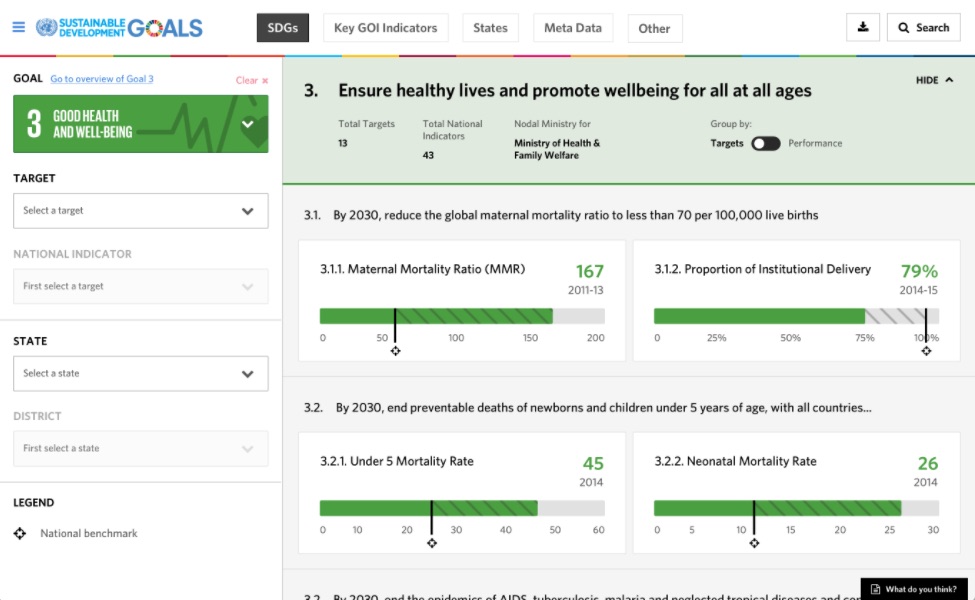

Our Sustainable Development Goals tracking solution, built in partnership with the United Nations Resident Coordinator's Office (India), helps government agencies to measure, track and align their country's development efforts with the United Nations' SDG framework.
Watch a video demoWorking with SocialCops has brought a wealth of cutting edge data analytics and software engineering to PNG, epitomising South-South partnerships and knowledge sharing. They have worked around the clock to prepare this dashboard in record time and I am very proud of the result.
Former Resident Coordinator
UN, Papua New Guinea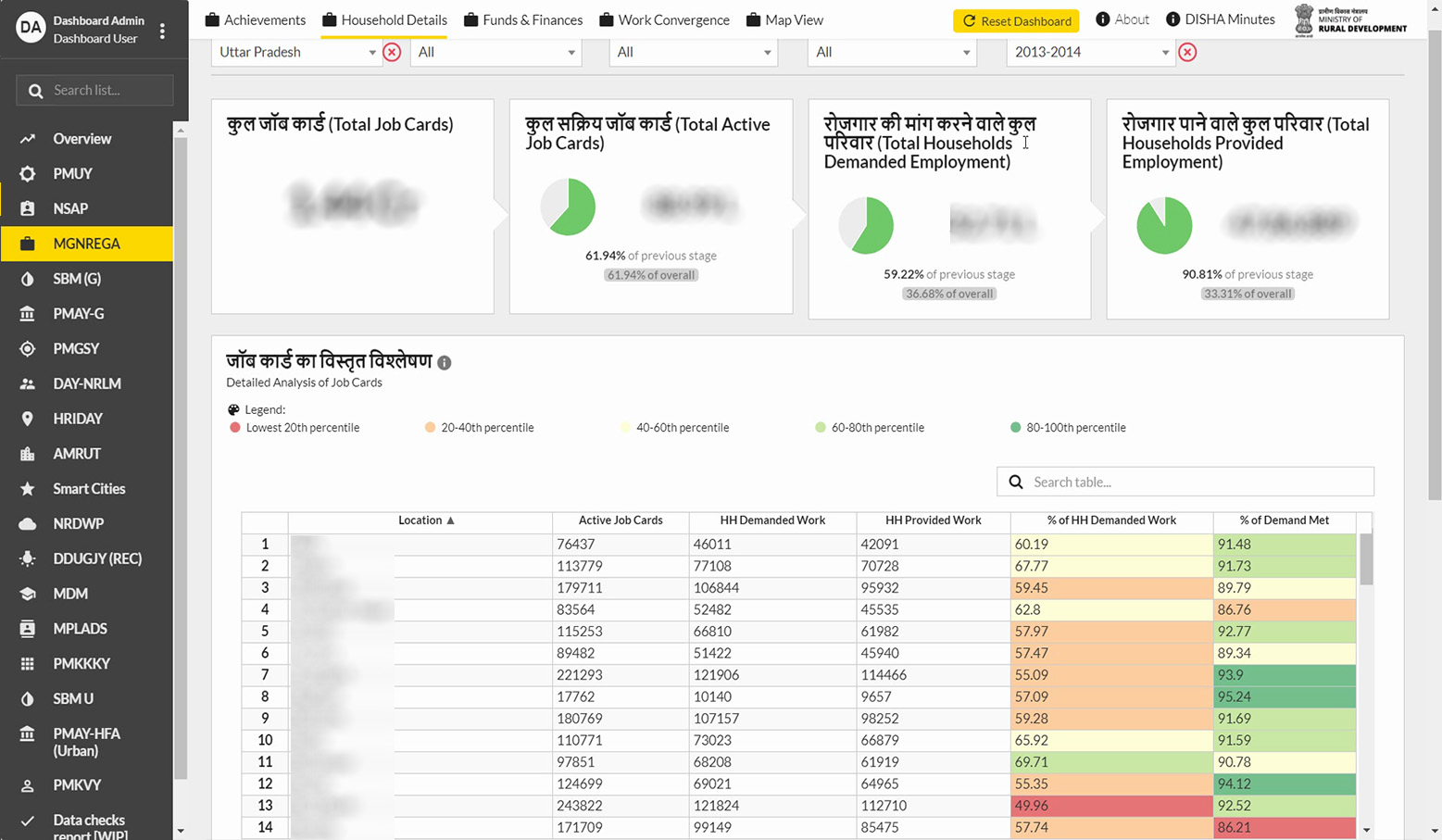

This scheme monitoring and program tracking solution helps governments to implement, track and measure the performance of their programs with data. It connects internal MIS systems with digitized paper field reports, all visualized on intuitive dashboards.
Watch a video demo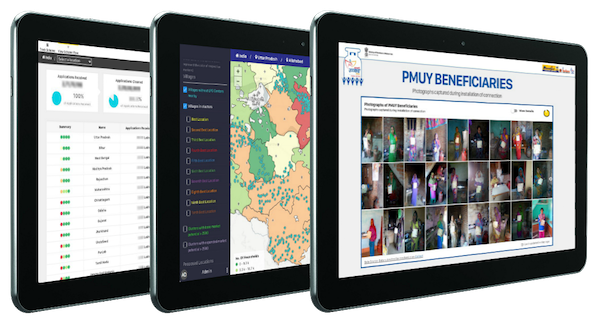

Access to clean cooking fuel is a huge problem in India. The Ministry of Petroleum and Natural Gas partnered with SocialCops to fulfill their flagship scheme's ambitious goal — bring clean cooking fuel to 15 million women in the scheme's first year. With our platform, we overshot that goal by 47%, reaching 22 million women in 2016-17. (Read more.)
SocialCops was instrumental in assessing, analyzing and interpreting the data with high accuracy... For the first time, it was possible for us to assess the scheme on a pan-India level.
Cabinet Minister for Petroleum & Natural Gas
Government of IndiaWhile building these solutions, we picked up tons of knowledge and best practices around how to turn data into better decisions. We steadily shared our learnings on our blog and newsletters, and we were thrilled to see the world respond.
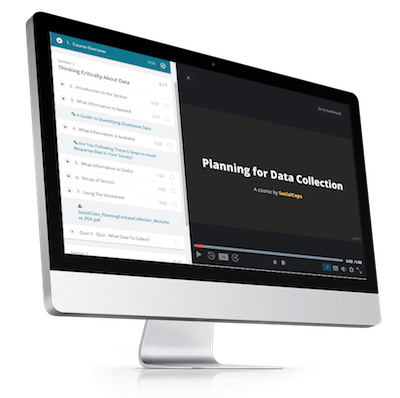
MOOC
Many of our friends love learning through videos, not ebooks. That's why we created our first online course — how to plan a data collection exercise. Over 2,000 learners from 145 countries have enrolled in the course so far.
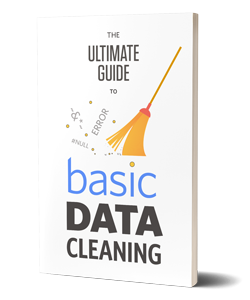
EBOOK
In 2016, we published an unexpectedly popular ebook on data collection. This year, we added an ebook on how to clean your data once you've collected it. Over 6,000 people have downloaded these ebooks.
The majority of our new teammates — 22 to be exact — were interns, plus 3 Data For Impact Fellows and 3 consultants. 5 of our interns just couldn't bring themselves to leave and converted to full-time team members!
The sister of one of our teammates traveled from the U.S. for a summer internship, where she became the resident expert on public speaking and storytelling.
It doesn't hurt that our favorite coffee roaster is just around the corner from our office. With a nearly equal amount of chai consumed, we were certainly a well caffeinated office this year.
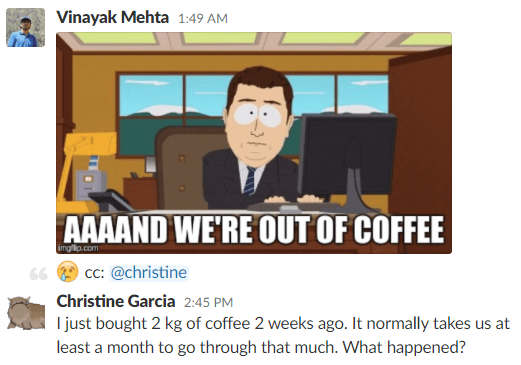

We're fans of emojis, so it's no surprise that our team added nearly a hundred emojis to Slack this year. We started out small, turning our team members' faces into emojis, but we quickly graduated to an abundance of emojis honoring our favorite projects, partners, memes, tech and more.
One of our co-founders isn't a big fan of dogs, so we sneak our doggies into the office when they leave town. This year, our dogs frolicked in the office and brightened our days three different times.
In 2017, we started an office library, where anyone can share their books with the team. So far, we've racked up 85 books on everything from startup stories and data to languages and history. We even check our books in and out on Collect!
We celebrate our work anniversaries just as excitedly — if not more — than our birthdays. We were thrilled to celebrate 13 team members reaching one year with us, 10 celebrating their second year, and 2 celebrating their third year. (That's quite a feat in a company that's only 4 years old!)
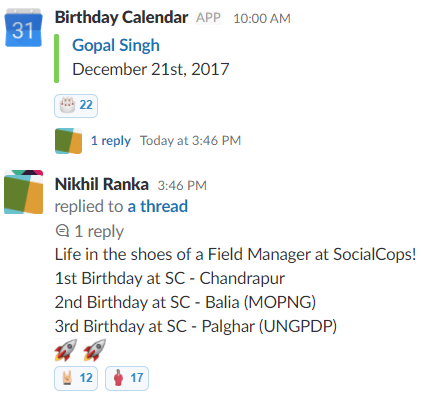 Read about their journeys
Read about their journeys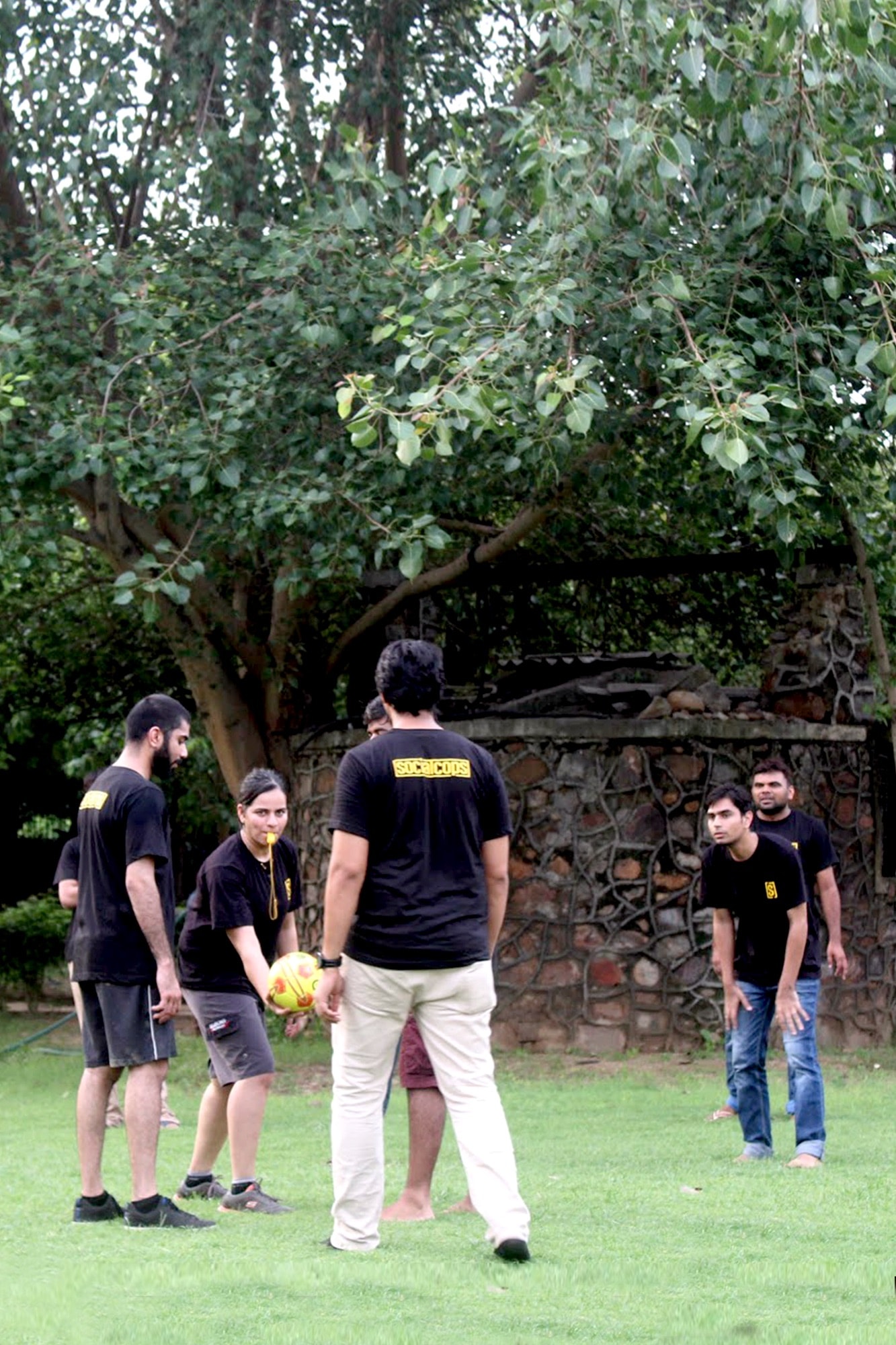
When we see a problem, our instinct is to tackle it head on. We will always value people who believe in actions — those who think big and turn their dreams into work toward our goals.
We don't settle for what's expected. Instead, we push ourselves to go the extra mile. This means raising the bar every time to work smarter and execute to the absolute best of our abilities.
When a partner shares a feature request or spec sheet, we always dig deeper into the "why". If our solution fulfills their contract but doesn't actually solve their problem, we haven't done our job.
We come from diverse backgrounds, but we come together as one team. We treat everyone with equal respect regardless of gender, age, experience, role, or any other trait.
This is not only encouraged, but expected at SocialCops. If you're not proactively giving feedback, we think you're actually doing your teammates a disservice.
Every day, our team puts our heads together to make the impossible possible. Growing ourselves and our work exponentially is an essential part of our daily work.
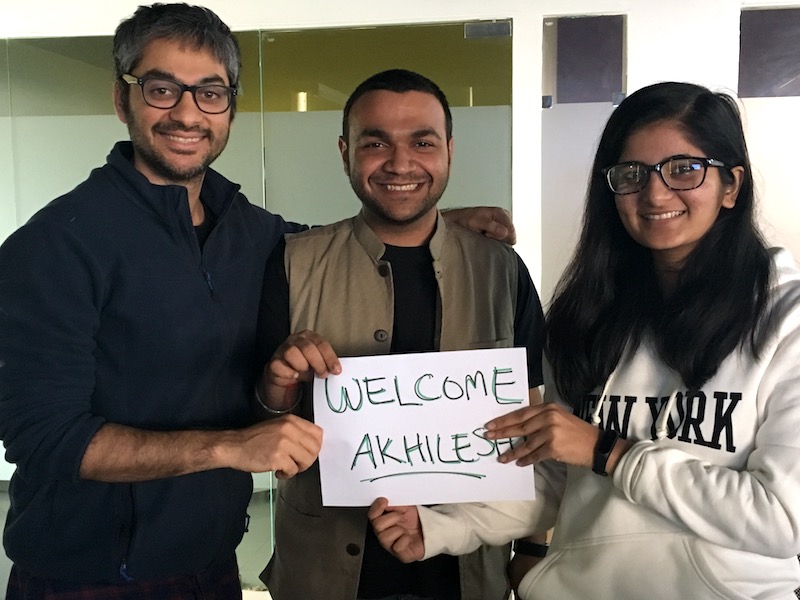
Onboarding sets someone up for success at SocialCops, which is why we care about it so much. Knowing that this year would bring an influx of new team members, we wanted to make sure our onboarding was top notch! We created new processes and content just for onboarding. And we get feedback from every new person to make sure we're constantly improving the process!
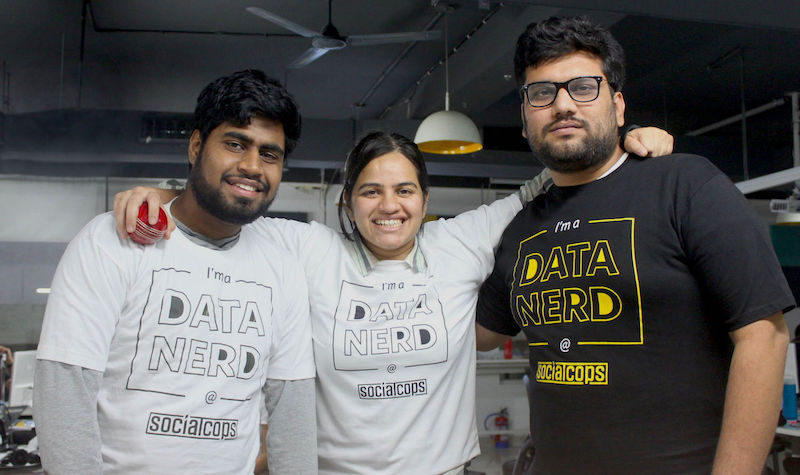
Providing constant feedback to teammates was easy when we were a small team. This year, we created a quarterly review process in which team members self assess and receive feedback from peers and team leaders. The in-person feedback sessions then help us review our progress and set goals for the future.
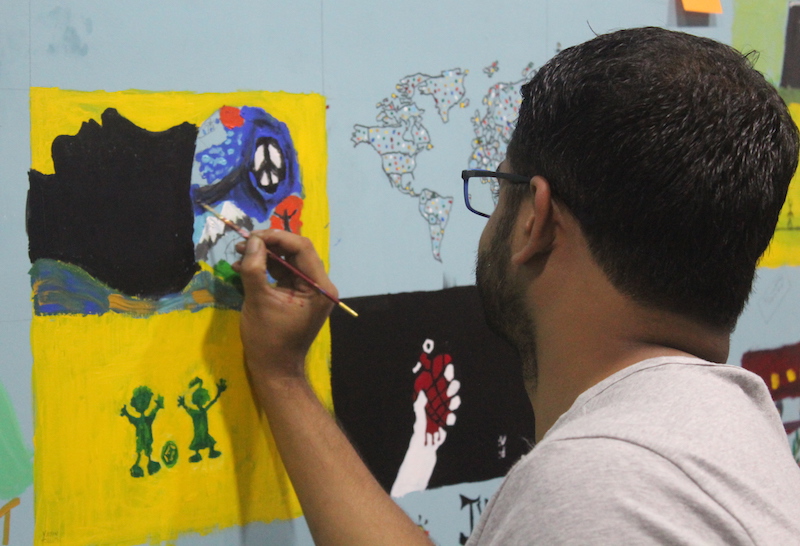
In June, we held our 2017 Hackathon. Our goal: build amazing things to make SocialCops better. For 24 hours, we learned and hacked our way through ambitious projects, including a Google Instant app for our sales team and interactive timelines about SocialCops' history for onboarding new hires.
2017 was a remarkable year for us. We're so excited to have shared it with so many passionate partners who have taken our work to new heights.
From everyone in Team SocialCops, thanks for a great 2017! We can't wait to continue using data intelligence to power better decisions in 2018.